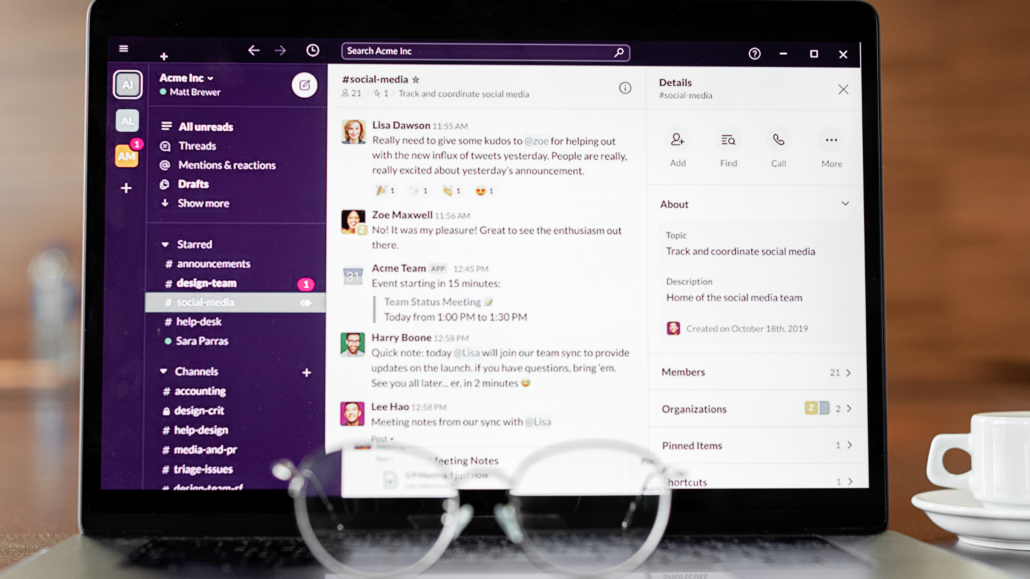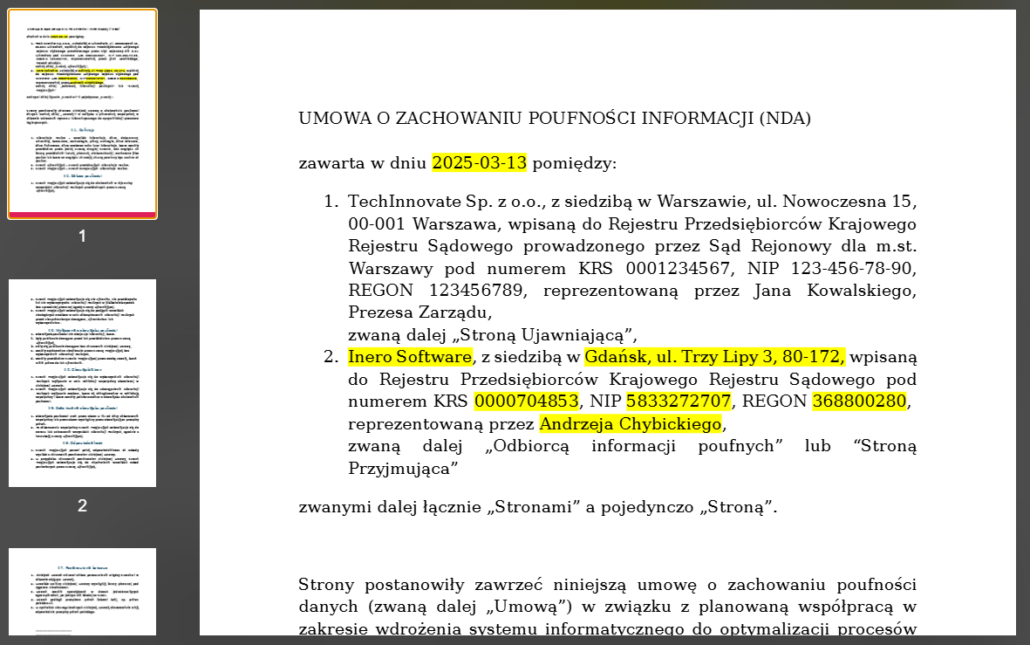
Are you looking for practical examples of AI agent applications in a business setting? In our previous blog, we discussed integrating an AI agent with email in a freight forwarding company. You can find the full text here >>. This time, we will explore how an AI-powered agent can support legal, administrative, and human resources departments. Check out our latest case study.
AI agents are intelligent systems based on machine learning algorithms. You can learn more about them in this text >>. They can be integrated with various tools such as email, ERP, or CRM systems. In this example, we will demonstrate an integration with the Slack communication platform.
Slack is used as a team collaboration tool that enables messaging, organizing discussions in thematic channels, file sharing, and integration with other business applications.
One of the available options is API integration with a selected LLM (Large Language Model) such as Gemini, ChatGPT, or DeepSeek. This time, our AI agent will be based on ChatGPT from OpenAI and Google Search.

You are surely familiar with situations where an offer or contract needs to be urgently prepared by filling in a template. Every day, employees have to draft, analyze, and negotiate various documents, including commercial agreements, supplier contracts, non-disclosure agreements (NDAs), and collaboration agreements.
Many managers wonder how artificial intelligence can automate and accelerate some of these tasks without compromising the high quality of work. The solution once again lies in implementing a dedicated AI agent that supports employees by searching for and filling in information based on data from the National Court Register.
In our example, we designed the AI agent to receive commands via the Slack platform and automatically fill in contractor details in a pre-existing NDA template. Thanks to its integration with Google Search, the agent retrieves specific data from the National Court Register (KRS), including the company’s address, tax identification number, business registry number, KRS number, and the authorized representative of the company.
Next, the assistant asks for verification of the retrieved information. Once confirmed, the employee receives the NDA with the partner company’s details filled in. The completed fields are highlighted in yellow to ensure visibility of the changes made.
This is just one of many examples of how an AI agent can support documentation and front- and back-office processes. Using our developed method, we can create a tool that prepares contracts for companies dealing with, for example, seasonal employment or those with high employee turnover.

AI agents are a relatively new topic but are rapidly gaining popularity. Many companies recognize benefits such as time savings on repetitive tasks, reduced operational costs, and increased business process efficiency. By automating routine tasks, employees can focus on more strategic and creative aspects of their work.
Moreover, AI agents can operate 24/7, eliminating delays caused by staff availability. Their applications span various fields—from customer service and legal document analysis to advanced decision-support systems in business.
Companies are increasingly adopting open language models, allowing for greater control over data and the customization of AI agents to meet specific organizational needs. As technology evolves, we can expect even deeper AI integration into daily processes, along with a growing awareness of ethical considerations and security in their use.

